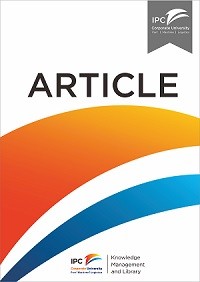Article
Organization-environment relationships : theory for management practice in human service organizations
The article discusses lessons for executive directors in human service organizations, for managing organization-environment relationships. The first section reviews the three main theories of organizationenvironment relations: ecological theories, institutional theories, and adaptation theories (with emphasis on the political-economy and resource-dependency perspectives). Following this presentation, the article discusses the lessons derived from each of the theoretical approaches for executive directors in human service organizations. Emphasis is placed on several types of organizational behavior: passive and reactive organizational behavior, accepting environmental constraints; strategic behavior that conforms to the demands of the government and funding sources; and, alternatively, proactive strategies as expressed in new initiatives and attempts to identify threats and opportunities that will change the power-dependence relations between the organization and its environment. As regards the lessons for executive directors in human service organizations, given the rapid changes in their environments, it is important for them to develop an external organizational orientation and manage the environ ment just as they manage the organization’s internal environment. In this way, they attain the legitimacy and resources needed for the organization’s survival.
Ketersediaan
Informasi Detail
- Judul Seri
-
-
- No. Panggil
-
ATC MG SCH o
- Penerbit
- Israel : Routledge., 2008
- Deskripsi Fisik
-
18 p.
- Bahasa
-
English
- ISBN/ISSN
-
0364-3107
- Klasifikasi
-
MG
- Tipe Isi
-
-
- Tipe Media
-
-
- Tipe Pembawa
-
online resource
- Edisi
-
Vol. 28(1) 2004
- Subjek
- Info Detail Spesifik
-
-
- Pernyataan Tanggungjawab
-
Hillel Schmid
Versi lain/terkait
Lampiran Berkas
Komentar
Anda harus masuk sebelum memberikan komentar

 Karya Umum
Karya Umum  Filsafat
Filsafat  Agama
Agama  Ilmu-ilmu Sosial
Ilmu-ilmu Sosial  Bahasa
Bahasa  Ilmu-ilmu Murni
Ilmu-ilmu Murni  Ilmu-ilmu Terapan
Ilmu-ilmu Terapan  Kesenian, Hiburan, dan Olahraga
Kesenian, Hiburan, dan Olahraga  Kesusastraan
Kesusastraan  Geografi dan Sejarah
Geografi dan Sejarah